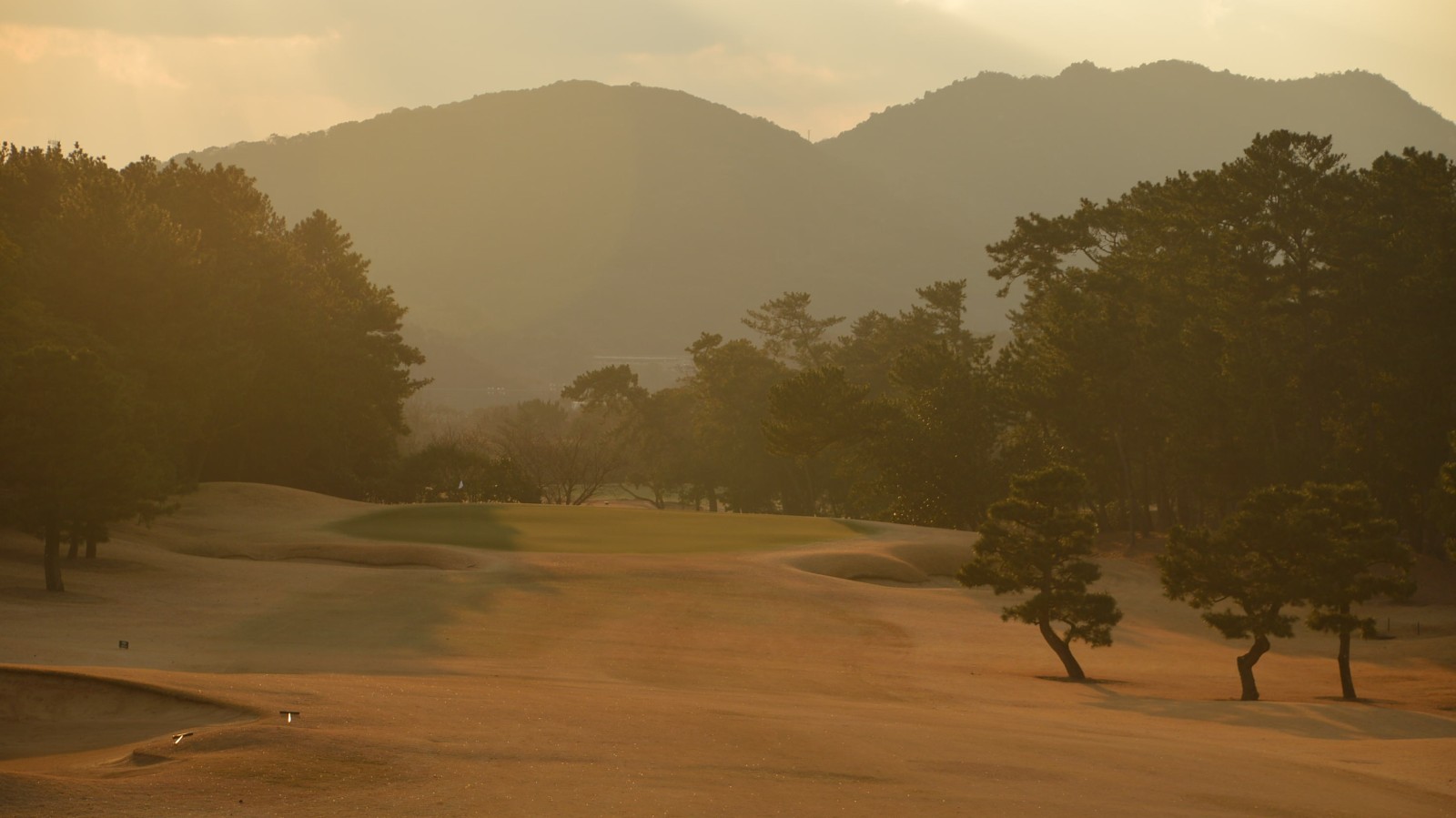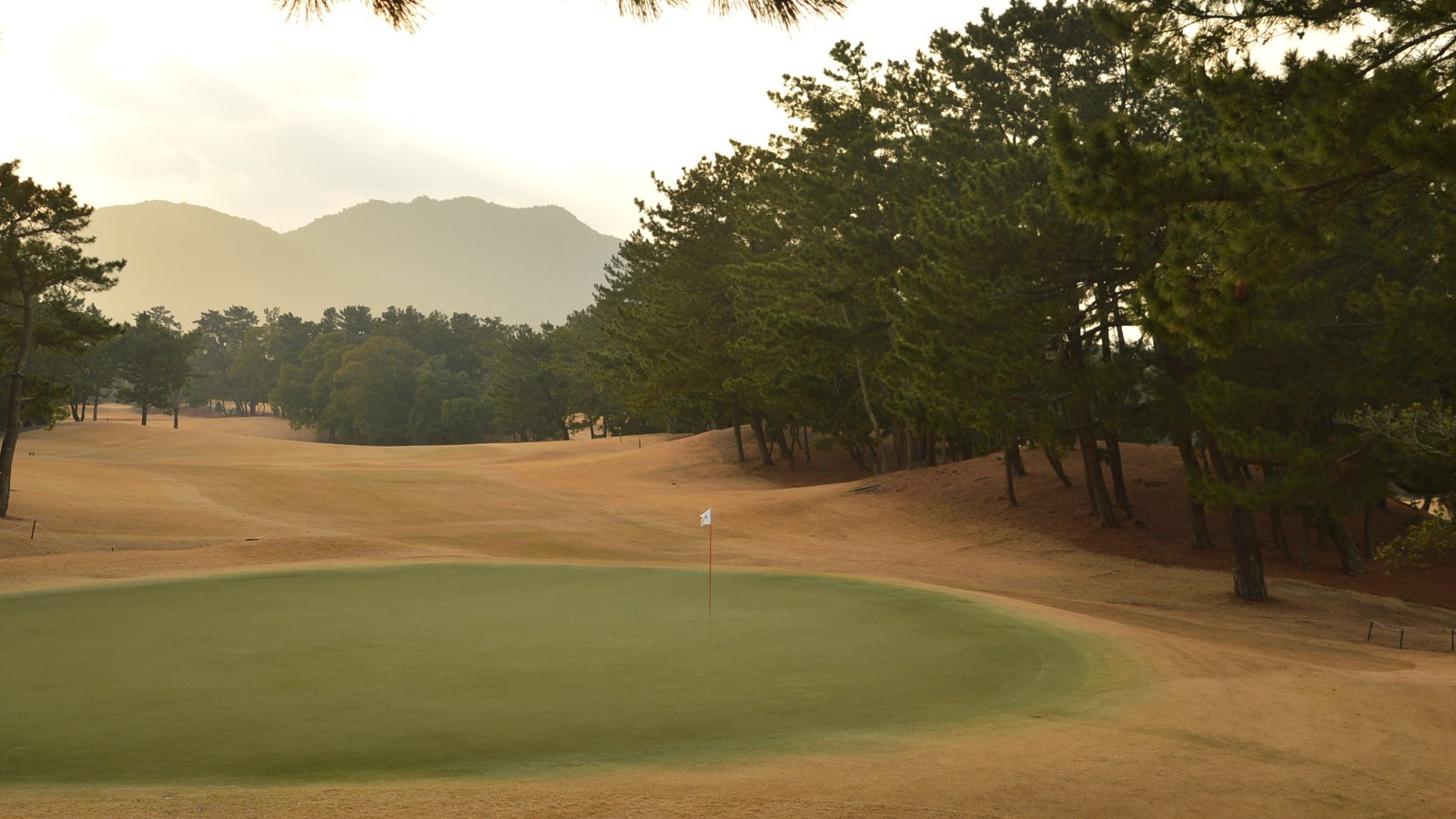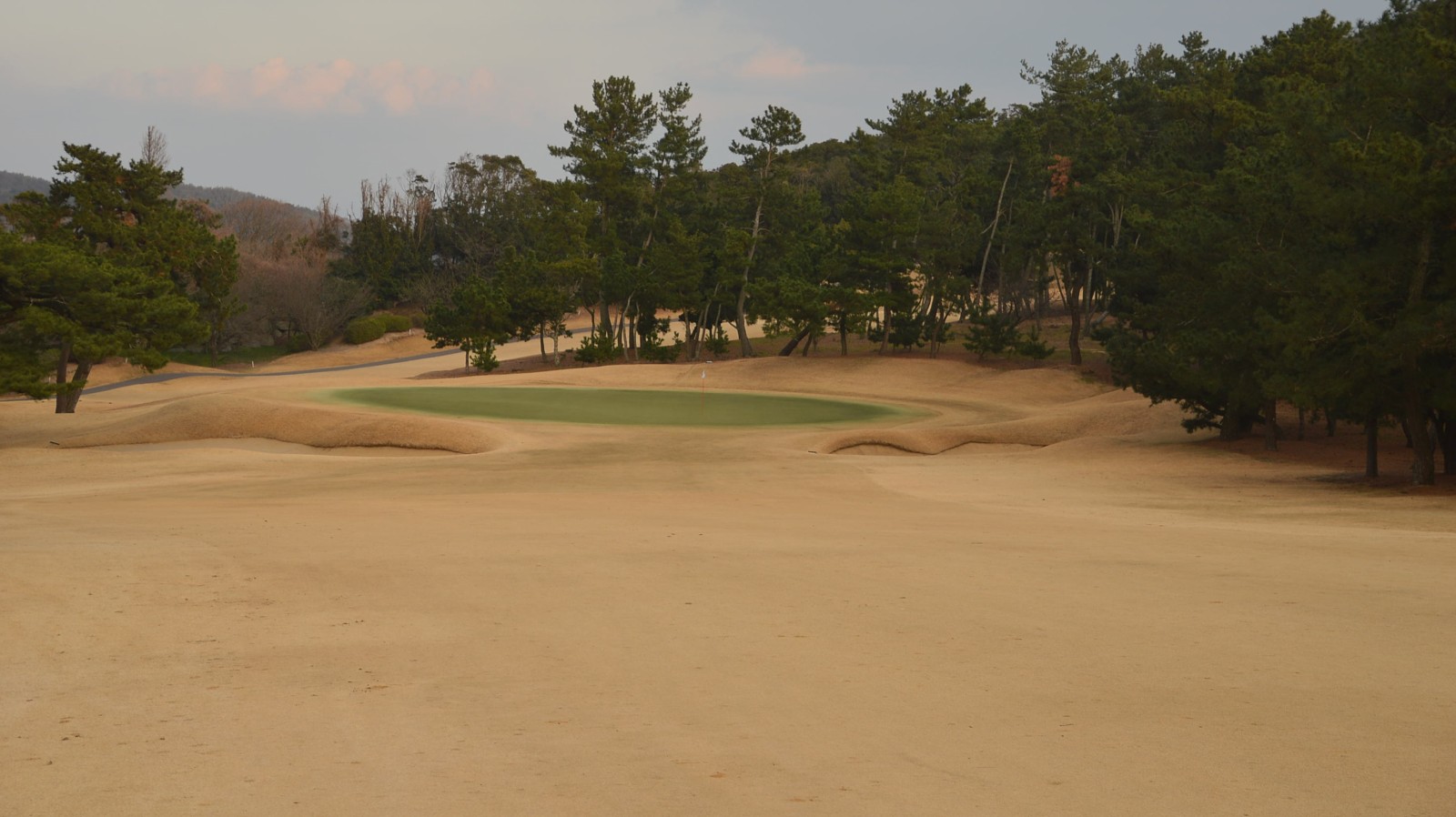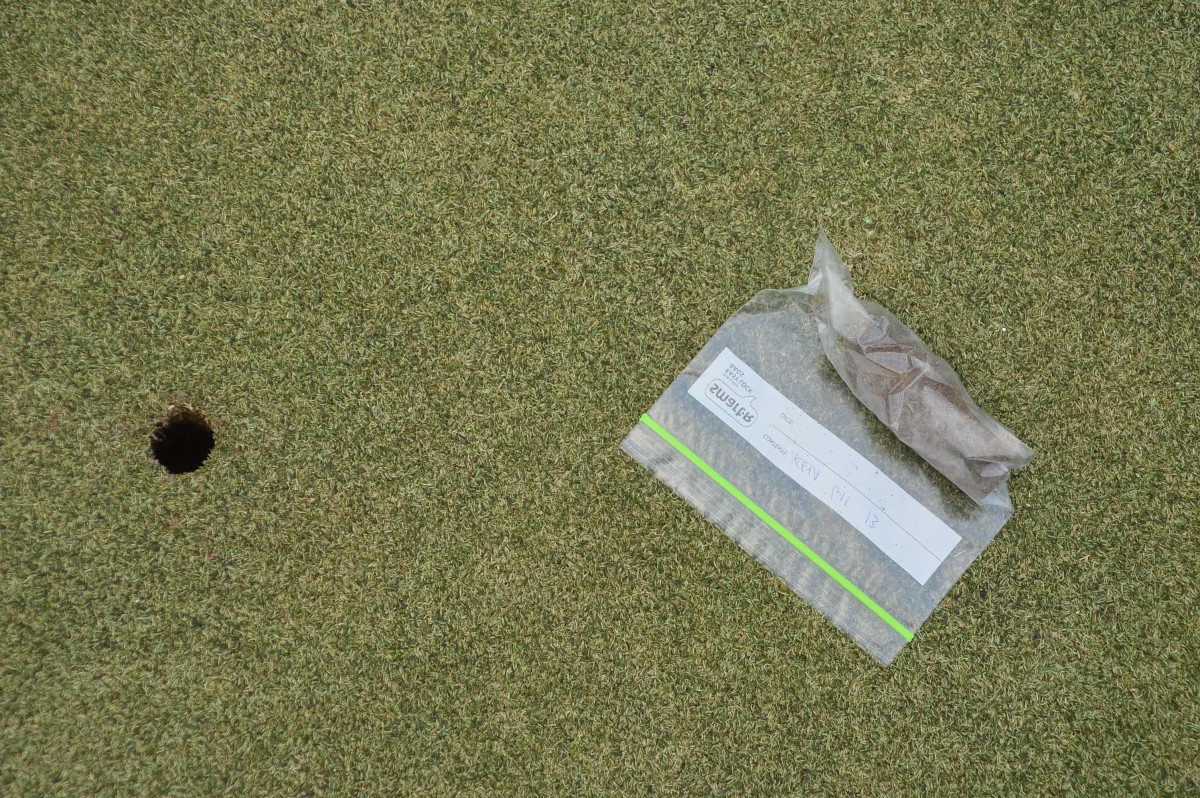I was in Fukuoka last weekend and enjoyed the mid-winter weather and the seasonal colors of the turf. This is what golf courses in Japan look like in the winter.
 The par 4 fifth hole at Keya GC in Fukuoka on a February afternoon.
The par 4 fifth hole at Keya GC in Fukuoka on a February afternoon.
Most golf courses in Japan have korai (Zoysia matrella) tees and fairways and noshiba (Zoysia japonica) roughs. Most courses have creeping bentgrass (Agrostis stolonifera) greens.
Golf courses in winter, then, will generally look like this—dormant fairways and rough and green putting greens. Some golf courses will apply colorants to tees or fairways to make them green in winter. There is a striking look with the natural, seasonal color of the grass. That golden color is exactly what one sees in winter on the Imperial Palace lawn, or on the lawns of the Three Great Gardens of Japan.
 View from behind the par 5 fourth hole at Keya GC in Fukuoka.
View from behind the par 5 fourth hole at Keya GC in Fukuoka.
Keya Golf Club in Fukuoka has korai greens, but they are green this winter because of pigment application.
 Grass colors on the tenth hole at Keya GC.
Grass colors on the tenth hole at Keya GC.
I got a close look at the green colors when I collected soil samples from one of the greens yesterday.
 Korai (Zoysia matrella) on a putting green at Keya GC in Fukuoka on 10 February.
Korai (Zoysia matrella) on a putting green at Keya GC in Fukuoka on 10 February.
This is a continuation of the project I’ve been doing to study subsamples and compositing of subsamples for soil nutrient analyses. I’ve put my recent series of blog posts on that topic together into this PDF document about composite soil sampling for turfgrass.